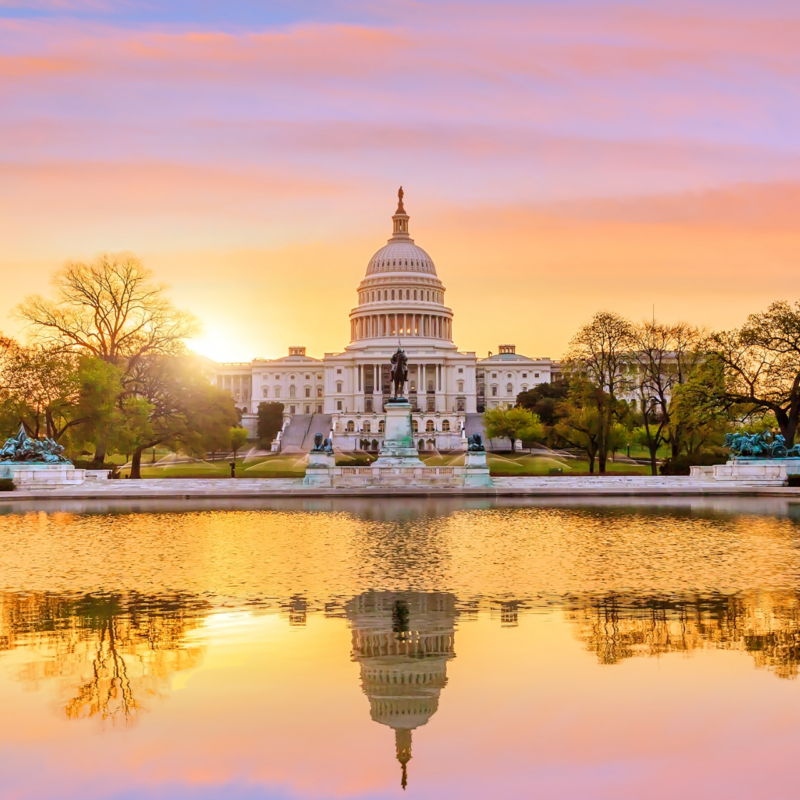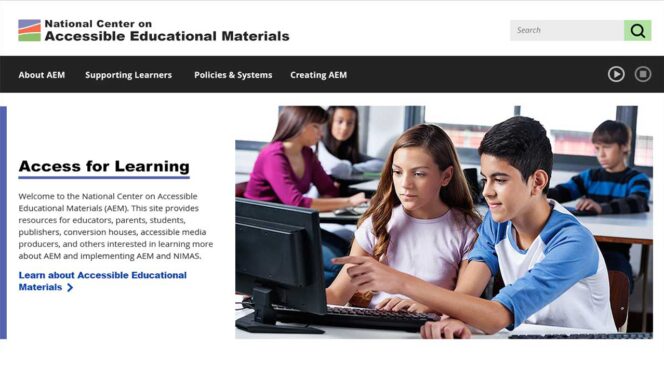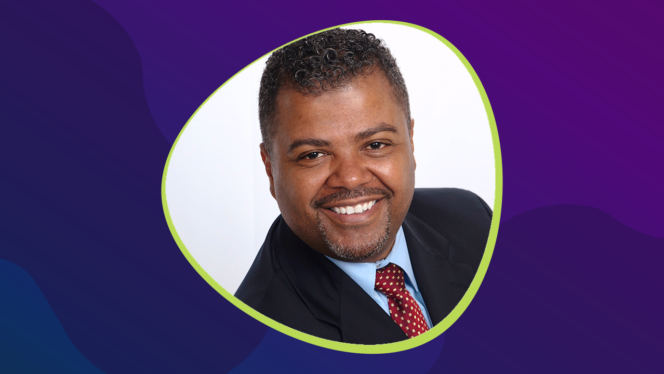This year’s UDL-Con: International will be held online and in-person at the Capital Hilton, Washington, DC Tuesday, July 22 to Wednesday, July 23, 2025.
Universal Design for Learning (UDL) is a framework for addressing the educational needs of diverse and variable learners in many settings across all stages of life. It is a means of eradicating persistent inequities in education, informed by the educators who use it and their students.
This year, we are thrilled to host the world’s largest International UDL Conference in Washington, DC—a global gathering of educators and thought leaders dedicated to breaking down barriers to learning. We invite experts across various fields to join us as we dive deeper into the transformative power of Universal Design for Learning (UDL) and its potential to shape the future of education. Together, we will spotlight innovative practices already revolutionizing learning and collaborate to co-create systemic changes that empower all learners to thrive. Let’s reimagine what’s possible in education together!
All proposals are due by Friday, February 28, 2025, at 11:59 p.m. PST (translate to your time zone).
If your organization (for-profit or non-profit) offers services or products to K-12 or higher education institutions, we invite you to explore opportunities within CAST’s partnership program. For inquiries or to discuss participation in UDL-Con, please contact Christine Fox at cfox(at)cast.org. For general questions about UDL-Con, please email us at udlcon(at)cast.org.
Learn more about UDL-Con: International
Proposal Information
We are seeking presenters and facilitators who represent diverse perspectives on educational change, delivering thought-provoking sessions that deeply explore how Universal Design for Learning (UDL) can transform the future of education. Share your latest research, innovative practices, successes, and challenges to inspire and empower others.
Questions we aim to explore include:
- What emerging innovations or movements are reshaping and improving teaching and learning? How can these innovations/movements create systemic changes that ensure more equitable opportunities and outcomes for traditionally marginalized students?
- What assumptions about learning and intelligence need to be challenged to ensure all students can thrive?
- How can UDL bridge differences and create common ground across diverse perspectives?
- How can we connect the latest research to the design of bold new practices? How can research and practice continuously inform one another so that they work symbiotically?
- How could cutting-edge innovations, including AI, help support learners to thrive?
- How should inclusive technologies be developed and implemented to ensure true accessibility for all?
We’re also excited to host practical, how-to sessions centered around UDL themes, including:
- Engaging Presentations: Learn strategies for crafting dynamic and accessible presentations.
- Agile Learning Spaces: Discover creative, budget-friendly approaches to designing flexible environments.
- AI Prompt Creation and Inclusive Technologies: Explore how cutting-edge innovations can support diverse learners.
- SEL Hacks: Tips and tools for promoting student agency and identity through Social-Emotional Learning.
Key Themes to Explore:
- UDL and AI, Technology, or Social Media
- UDL: Research and Practice
- UDL Practical Application of 3.0
- UDL: Global and International Perspectives
- The Future of UDL Research and Practice
- How-To Sessions
- Opportunities to Build Community
Do you have another idea? We’d love to hear from you! Share your expertise and inspire the global UDL community by submitting a proposal. Together, we’ll design bold solutions to create an equitable future for all learners. Submit your proposal today and help shape the future of education!
Target Presenters/Facilitators
CAST seeks presenters and facilitators with diverse viewpoints, cultures, and experiences. We invite educators from all settings—PreK through workforce, including teachers, professors, administrators, researchers, paraprofessionals, professional developers, and corporate trainers—to apply. We also welcome voices from a variety of urban, suburban, and rural contexts, representing communities across the U.S. and around the globe.
Who is attending?
Attendees include individuals passionate about creating better learning experiences and connecting with a community dedicated to driving systemic change. This diverse group includes educators from classrooms and beyond, such as teachers, professors, administrators, curriculum designers, technology leaders, specialists, advocacy groups, workforce trainers, activists, disability studies scholars, researchers, parents/guardians, students, and more.
Session Formats
This year’s UDL-Con will be a hybrid event! You may either facilitate a live in-person session or a live virtual session.
In-Person Sessions
- UDL Talk (in-person): 20-minute session (15 minutes of presentation, 5 minutes Q&A) highlighting fresh insights on inclusive education. Talks are grouped by theme to foster meaningful connections and knowledge exchange.
- Live Interactive Workshops (in-person): In-person sessions will be 60 minutes long, with at least 30 minutes dedicated to participant interaction. These sessions should pair new content with generative discourse, activities, and collaborative opportunities such as breakout rooms, chat discussions, live written collaboration or full-group conversations. Facilitators are encouraged to enhance engagement by incorporating techniques like polling, audience-generated content, infographics, or gamification to create a dynamic and interactive experience.
- Panel or Roundtable Discussion (in-person): 60-minute in-person panel or roundtable discussions should include two or more participants with unique perspectives. We ask facilitators to be explicit about the types of questions they will develop themselves and what percentage of questions, if any, will come from the live audience.
- Literary Insights Circle (in-person): 40 minutes of in-depth, small-group conversation (10–15 participants) focused on a selected book related to inclusive, equitable, and accessible education. The session’s moderator chooses the book and can focus on any aspect of UDL learning. With reading encouraged beforehand, attendees arrive prepared to explore key themes and insights. Moderators pose guiding questions to spark thought-provoking discussion—no technology or AV support is provided.
- UDL PechaKucha (in-person): UDL PechaKucha condenses big ideas into a storytelling format: A presenter displays 20 slides, each for 20 seconds, totaling 6 minutes and 40 seconds, with exactly 20 images in a PowerPoint and slides auto-advancing every 20 seconds. What is a 20×20 PechaKucha?
- Design Lab (in-person): This is a 120-minute hands-on session in which participants create usable plans and/or products to take with them.
Hybrid Sessions
- UDL Talk (hybrid): 20-minute session (15 minutes of presentation, 5 minutes Q&A) highlighting fresh insights on inclusive education. Talks are grouped by theme to foster meaningful connections and knowledge exchange.
- Live Interactive Workshops (hybrid): Sessions will be 60 minutes long, with at least 30 minutes dedicated to participant interaction. These sessions should pair new content with generative discourse, activities, and collaborative opportunities such as breakout rooms, chat discussions, live written collaboration or full-group conversations. Facilitators are encouraged to enhance engagement by incorporating techniques like polling, audience-generated content, infographics, or gamification to create a dynamic and interactive experience.
- Panel or Roundtable Discussion (hybrid): 60-minute in-person panel or roundtable discussions should include two or more participants with unique perspectives. We ask facilitators to be explicit about the types of questions they will develop themselves and what percentage of questions, if any, will come from the live audience.
Virtual Sessions
- UDL Talk (virtual): 20-minute session (15 minutes of presentation, 5 minutes Q&A) highlighting fresh insights on inclusive education. Talks are grouped by theme to foster meaningful connections and knowledge exchange.
- UDL In-Depth Sessions (virtual): 60-minute session where (3) presenters create how-to presentations around a specific UDL theme. Focus Areas: Accessible Documents, AI prompt creation, inclusive technologies. Exploration Topics examples: Designing engaging and accessible presentations, budget-friendly strategies for building agile learning spaces, and SEL (Social-Emotional Learning) tips for fostering agency and identity.
- Live Interactive Workshops (virtual): Live virtual sessions will be 60 minutes long, with at least 30 minutes dedicated to participant interaction. These sessions should pair new content with generative discourse, activities, and collaborative opportunities such as breakout rooms, chat discussions, live written collaboration or full-group conversations. Facilitators are encouraged to enhance engagement by incorporating techniques like polling, audience-generated content, infographics, or gamification to create a dynamic and interactive experience.
- Live Panel or Roundtable Discussion (virtual): 60-minute in-person panel or roundtable discussions should include two or more participants with unique perspectives. We ask facilitators to be explicit about the types of questions they will develop themselves and what percentage of questions, if any, will come from the live audience.
- Prerecorded Workshop (virtual): This is a 120-minute hands-on session in which participants create usable plans and/or products to take with them.
Session Facilitator Responsibilities
We ask that session facilitators agree to the following expectations:
- Accepted facilitators of live interactive workshops are invited to purchase a ticket for the conference at a special discounted rate, as we are unfortunately unable to provide complimentary admission. Be sure that your proposal submission form also includes your co-facilitator(s) so that they can also receive the discount.
- Facilitators agree to add all session materials to the public schedule no later than June 30, 2025. Facilitators who cannot upload their materials by this deadline will be removed from the conference schedule.
- Facilitators agree to make all session materials and interactions accessible and inclusive. Our UDL Conference Team will provide guidance via drop-in virtual accessibility sessions and design labs.
- Your session materials may include, but are not limited to: Slides, digital handouts, videos, web links, and other items as needed.
Proposal Submission
Proposal submissions must be submitted via the online submission form below.
The deadline for proposal submissions is Friday, February 28, 2025, at 11:59 p.m. PST (translate to your time zone).
Applicants will be notified of their selection status in early March.
Acceptance Criteria
Proposals will be reviewed on how closely they meet the criteria below. The full acceptance rubric may be found in the submission guidelines (PDF).
Relevance to the theme:
- Does the proposal answer and clearly explain at least one of the questions in the Proposal Information section and offers new or interesting insights?
- Does the proposal clearly give a clear, comprehensive explanation of what will happen in the session?
- Does the session actively engage participants in the topic in multiple forms?
Alignment with Universal Design for Learning:
- Does the proposal articulate a clear, challenging goal that can be achieved during the session?
- Does the proposal deeply anticipate and reduce not only access level barriers, but also those at the “build” and “internalize” levels?
Session Tags
We are looking for proposals that represent a wide variety of content areas and age levels. Applications will also be chosen to ensure we have the widest representation of topics and presenters possible. When submitting your proposal, you will be able to select one primary tag that best represents your topic, and as many sub-tags as needed.
Primary Session Tags:
- Artificial Intelligence (AI)
- Accessibility and Inclusive Technologies
- Content area (math, ELA, science, CTE, etc.)
- Racial/Cultural/Language Equity
- Research to Practice
- Social Emotional Learning
- Special Education/Disability Studies
- Leadership/Systems Change
Session Sub-Tags:
- Pre-K/Elementary
- Middle/High School
- Post-Secondary
- Adult Education
- Workforce
- Professional Development
Deadlines & Notifications
The deadline for proposal submissions is Friday, February 28, 2025, at 11:59 p.m. PST (translate to your time zone).
Applicants will be notified of their selection status in early March.
Accepted facilitators will be required to upload their materials by June 30, 2025. Facilitators who fail to upload materials by this date will be dropped from the conference schedule.


